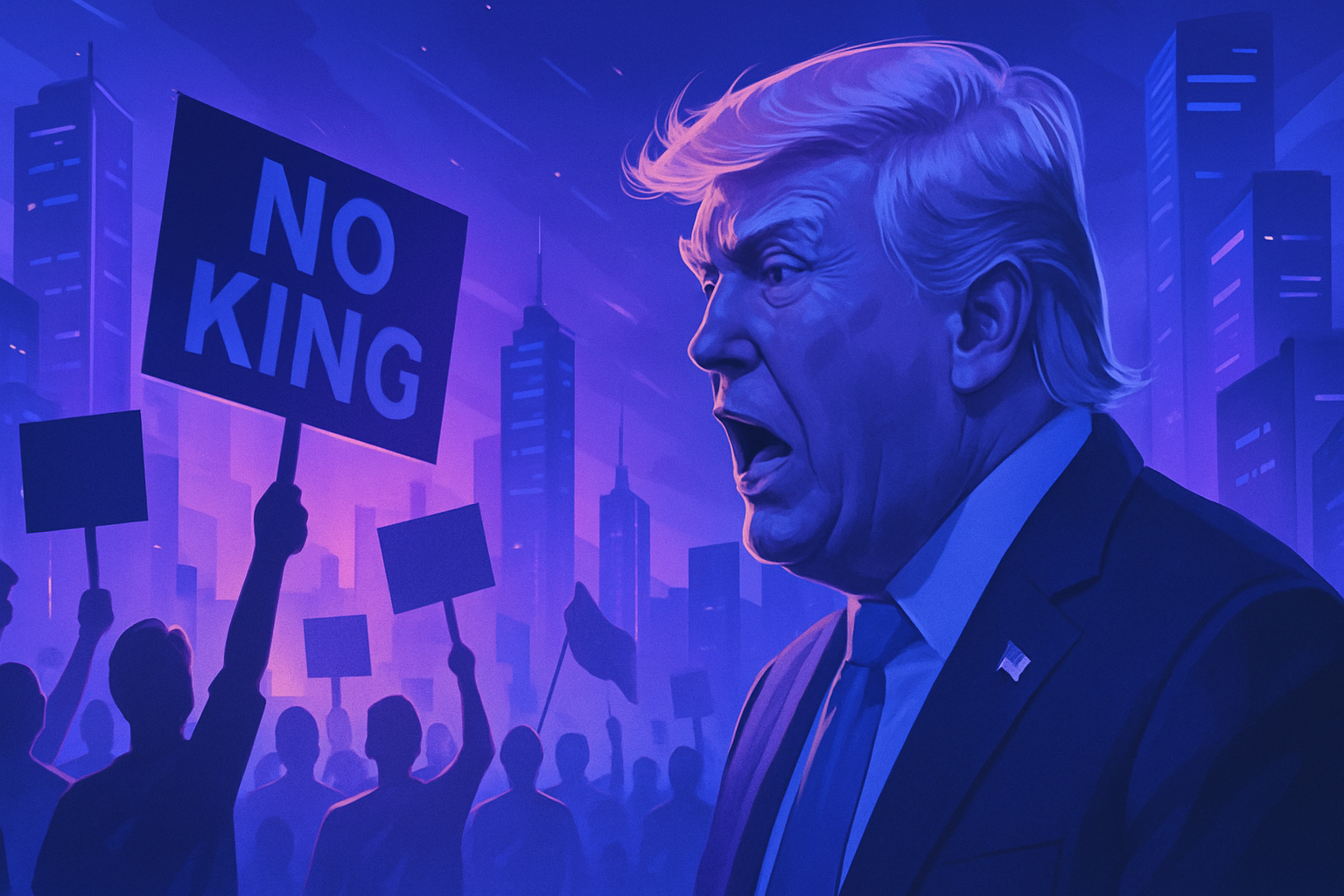The recent reaction of Trump to the ‘Without Kings’ marches revealed palpable tensions. The demands of the demonstrators, deeply rooted in social inequalities, found an unexpected resonance. An undeniable response thus emerged, exacerbated by an already volatile political context.
Through truncated communication, Trump illustrated a lack of understanding of the realities faced by these protesters. The sociopolitical stakes are now unavoidable, and the ramifications of this confrontation deserve careful examination. This phenomenon goes beyond simple political quarrels, engendering a broader reflection on democracy and equity.
Review of the ‘Without Kings’ protests
The ‘Without Kings’ marches highlighted deep sociopolitical claims and a growing disillusionment with institutions. These popular movements saw thousands of citizens expressing their dissatisfaction with a system they deem failing. The demonstrators, united under a common banner, denounce corruption and disconnection from the elites, calling for a radical transformation of governance.
Trump’s reaction: A barrage of statements
Donald Trump, in his response to the protests, used statements that only intensified the sentiments of the protesters. By referring to an alleged threat to democracy, the former president fueled the resentment of a population that already feels marginalized. His rhetoric, often divisive, has a dramatic tendency to exacerbate tensions rather than foster dialogue.
Shared discourses on social media
Social media played a key role in the propagation of opinions concerning these protests. Thousands of videos and messages were shared, reflecting the diversity of opinions. Part of the population seeks to validate the legitimacy of the ‘Without Kings’ claims while criticizing the current management of public affairs. Reactions on these various platforms often echo official discourse, further penalizing the current political actors.
The influence of recent incidents on mobilization
Recent events, such as the lifting of pandemic-related restrictions, seem to have contributed to a resurgence of activism. The demonstrators, galvanized by unfulfilled promises, saw in these incidents an opportunity to express their grievances. As a result, Trump and his supporters interpreted this as a symbol of instability, reinforcing their position on the need for strong authority.
The economic implications of this situation
Alongside political demands, economic questions have also emerged. The protesters express concerns regarding the unequal distribution of resources, exacerbated by political decisions often seen as favoring a select elite. The protests served as a reminder that the gap between different socio-economic groups is widening, a reality that neither Trump nor other leaders have been able to ignore.
Trump and Silicon Valley: An ambivalent relationship
Silicon Valley is a politically delicate playground. Trump has often turned to this region to urge innovation and growth, but he also faces virulent criticism from this milieu. His proposal to unleash the potential of artificial intelligence is contentious. The touted advancements in AI raise ethical and control questions that disrupt the national discourse.
Artificial intelligence: tool or threat?
The prospect of technological dominance by the United States, manifested through AI, creates anxiety among citizens. Concerns have intensified recently, particularly following Trump’s comments regarding the sale of advanced technologies to countries like China. The debate focuses on the potential risk of this technology being misused, making an appropriate regulatory framework urgent.
Confrontation between popular movements and political discourse
The tensions between the people and the political elite reveal a deep fracture, exacerbated by divisive rhetoric. Trump’s reaction to the ‘Without Kings’ marches undoubtedly confirmed the protesters’ perceptions, who feel crushed by a system they deem incompetent. This climate of distrust encourages a cycle of revolt that could have long-term implications for the American political landscape.
Commonly asked questions
What was Trump’s initial reaction to the ‘Without Kings’ marches?
Trump expressed displeasure regarding the protests, calling them disruptive and asserting that they were not representative of the majority of Americans.
How did Trump’s position impact the image of the protesters?
His reaction reinforced perceptions of the protesters as legitimate voices of dissent, highlighting their demands for better political representation.
What demands were highlighted by the ‘Without Kings’ protesters?
They primarily demanded equality of access to economic opportunities and better support for marginalized communities.
What events led to the emergence of the ‘Without Kings’ marches?
The marches were primarily triggered by a series of policies perceived as unfavorable to minorities and budget cuts to social programs.
How did Trump’s reaction confirm the protesters’ demands?
His response inadvertently lent legitimacy to the protests by validating the complaints of the participants and highlighting existing sociopolitical divisions.
What were the main slogans used during the marches?
The protesters used slogans calling for social justice, equality, and political reforms, such as “No king, only citizens”.
How did the media cover the marches and Trump’s reaction?
The media significantly reported on the protests and how Trump’s comments reflected a growing polarization within American society.
What has been the impact of the marches on the current political climate in the United States?
The marches have exacerbated the public debate on civil rights, increasing the visibility of the issues raised by the protesters and pressuring the government to respond.
Have there been political repercussions following the ‘Without Kings’ marches?
Yes, several political figures have started to address the issue of inequality and representation following the social pressure exerted by the protests.






